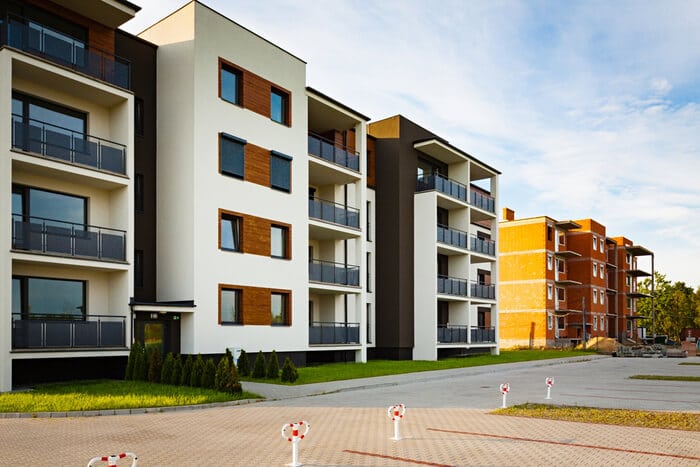Investing in apartment buildings can be a lucrative venture for real estate investors, providing a steady stream of income and potential appreciation in property value. However, one of the most significant challenges many investors face is securing the necessary financing. Understanding the various options available for apartment building loans is crucial for success in the multifamily housing market. This comprehensive guide will walk you through the types of loans available, eligibility criteria, key considerations, and success stories from real investors.
Understanding Apartment Building Loans
Apartment building loans are specifically designed to finance the purchase, renovation, or construction of multifamily properties. These loans come in various forms, each catering to different types of projects and borrower needs. Choosing the right loan can significantly impact your investment strategy and long-term success.
The Importance of Apartment Building Loans
Securing the right financing for your apartment building can affect:
Cash flow: Lower interest rates and favorable terms can enhance your monthly income.
Investment viability: The right loan can help you acquire properties that appreciate in value over time.
Property management: Effective financing can ease the burden of managing expenses, including maintenance and tenant turnover.
Types of Apartment Building Loans
1. Conventional Loans
Conventional loans are a popular choice for investors looking to purchase stabilized properties with a solid rental history. These loans typically offer competitive interest rates and terms, making them attractive for seasoned investors.
Loan Terms: Generally feature 15 to 30-year amortization schedules.
Down Payment: Usually requires a down payment of 20% to 25%.
Ideal for: Investors seeking long-term financing on income-generating properties.
2. FHA Loans
The Federal Housing Administration (FHA) provides loans that are particularly favorable for smaller apartment buildings (typically 1-4 units). These loans cater to first-time homebuyers and those with lower credit scores.
Loan Terms: Longer amortization periods of up to 40 years.
Down Payment: Minimum down payment can be as low as 3.5%.
Ideal for: First-time investors or those looking to purchase smaller multifamily properties.
3. Freddie Mac and Fannie Mae Loans
Both Freddie Mac and Fannie Mae offer loan programs specifically designed for multifamily properties. These loans are excellent for larger apartment complexes, often exceeding four units.
Loan Terms: Typically feature 5 to 30-year amortization periods.
Down Payment: Minimum down payments can range from 15% to 25%.
Ideal for: Investors looking to finance larger multifamily properties with established rental histories.
4. Bridge Loans
Bridge loans serve as short-term financing options for investors looking to quickly secure a property, renovate it, and then refinance into a long-term loan.
Loan Terms: Usually have terms of 6 months to 3 years.
Down Payment: Often requires a larger down payment, typically around 30%.
Ideal for: Investors needing immediate financing while planning to refinance later.
Loan Terms and Conditions for Apartment Building Financing
When considering an apartment building loan, understanding the various terms and conditions is essential. Here are some key aspects to evaluate:
1. Interest Rates
Interest rates can significantly affect your monthly payments and overall loan costs. Factors influencing your interest rate include:
Credit score
Loan type
Market conditions
2. Amortization Periods
The amortization period determines how long you’ll take to pay off the loan. Standard periods for multifamily loans range from 15 to 30 years. Longer amortization periods typically result in lower monthly payments, which can enhance cash flow.
3. Loan-to-Value (LTV) Ratios
The percentage of the property’s worth that the lender is willing to finance is shown by LTV ratios. Common LTV ratios for apartment building loans range from 70% to 80%, depending on the loan type and borrower profile.
4. Down Payment Requirements
Down payment requirements vary significantly among different loan types, ranging from as low as 3.5% for FHA loans to 20% or more for conventional loans. Your ability to provide a larger down payment can also lead to better loan terms.
Qualifying for an Apartment Building Loan
1. Credit Score Requirements
Most lenders require a minimum credit score to qualify for an apartment building loan. Here’s a general breakdown:
Conventional Loans: Typically require a credit score of 680 or higher.
FHA Loans: Accept lower scores, often starting at 580.
Freddie Mac/Fannie Mae: Generally require a score of 620 or higher.
2. Debt-to-Income (DTI) Ratio
Better financial standing is indicated by a lower DTI ratio, which also raises your chances of loan acceptance. A lower DTI ratio indicates better financial health and increases your chances of loan approval.
3. Cash Flow Projections
Lenders will analyze the projected cash flow of the apartment building to ensure it can cover operating expenses and debt service. A solid cash flow demonstrates the property’s income potential and its ability to sustain mortgage payments.
4. Borrower Experience
Lenders prefer borrowers with prior experience in property management or ownership. Demonstrating a successful track record can enhance your credibility and improve your chances of securing financing.
Key Factors to Consider When Choosing an Apartment Loan
When selecting the best loan for your apartment building investment, keep these factors in mind:
1. Property Condition and Location
The physical condition and location of the property play a significant role in loan eligibility and terms. Properties in high-demand areas typically attract better financing options.
2. Fixed vs. Variable Interest Rates
Deciding between a fixed or variable interest rate can affect your overall loan costs. Fixed rates provide stability, while variable rates may offer lower initial costs but can fluctuate over time.
3. Long-term Costs
Evaluate the long-term costs associated with the loan, including closing fees, prepayment penalties, and reserves. Making educated selections can be aided by your understanding of these costs.
Case Studies: Successful Apartment Building Loan Scenarios
Case Study 1: Securing a Freddie Mac Loan
An experienced real estate investor identified a 50-unit apartment building in a growing neighborhood. The investor secured a Freddie Mac loan with a 75% LTV ratio and a competitive interest rate of 4.25%. The favorable terms allowed the investor to maintain positive cash flow while completing necessary renovations, leading to increased rental income and property value over time.
Case Study 2: First-Time Investor with FHA Financing
A first-time investor sought to purchase a 4-unit apartment complex. Utilizing an FHA loan, the investor benefited from a 3.5% down payment and a 40-year amortization period. This enabled the investor to enter the multifamily market with minimal upfront costs. The property’s rental income quickly covered the mortgage, leading to a successful venture.
Case Study 3: Bridge Loan for Renovation
A property developer acquired an aging multifamily property needing extensive renovations. They opted for a bridge loan to finance the purchase and renovation costs. After completing the improvements, the developer successfully refinanced into a long-term loan with improved terms, significantly increasing the property’s value and rental income potential.
Frequently Asked Questions (FAQs)
Q: What is the required minimum down payment for a loan to build an apartment complex?
A: Minimum down payments vary based on the loan type. FHA loans can require as low as 3.5%, while conventional loans typically require 20% to 25%.
Q: Can I qualify for an apartment loan with bad credit?
A: While it is possible to qualify for an apartment loan with bad credit, options may be limited, and you may face higher interest rates and stricter terms.
Q: How much time does it take to approve a loan?
A: The loan approval process can vary, but typically takes anywhere from 30 to 60 days, depending on the lender and the complexity of the application.
Contact Us for Apartment Building Loan Assistance
At Residential Lender, we specialize in helping individuals secure financing for apartment buildings and multifamily investments. Our team of experts is here to guide you through the financing process, offering tailored solutions to meet your unique needs. Whether you’re a seasoned investor or a first-time buyer, we can help you navigate the complex landscape of apartment building loans. Contact us today to explore your options and take the first step toward your multifamily investment success!





